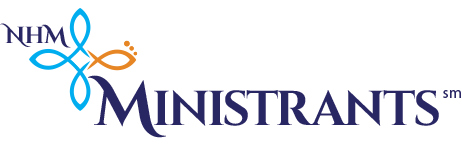Our Healers' Path Oath is based on a physician's oath by Hippocrates, The Hippocratic Oath. In developing our Oath, we looked closely at every section of the original Oath. Since this Oath was originally in Greek, we also took a look back at the Greek. The analysis below shows the similarities and differences, as well as the reasoning for changes, where made:
| HEALERS' PATH | HIPPOCRATIC | GREEK REFERENCE | DISCUSSION |
|---|---|---|---|
| I swear [you may add: with Jesus the Great Physician as my witness] to use my power and judgment to bring the following oath and written covenant to fulfillment: | I swear by the god Apollo the Physician and by Asclepius and by Health (Hygieia) and Panacea, and witnessed by all the gods and goddesses, to use my power and judgment to bring the following oath and written covenant to fulfillment: | Ancient: Όμνυμι Απόλλωνα ιητρόν καί Ασκληπιόν και Υγείαν και Πανάκειαν και θεούς πάντας τε και πάσας, ίστορας ποιεύμενος, επιτελέα ποιήσειν κατά δύναμιν και κρίσιν εμήν όρκον τόνδε και ξυγγραφήν τήνδε.Modern: Ορκίζομαι στο θεό Απόλλωνα τον ιατρό και στο θεό Ασκληπιό και στην Υγεία και στην Πανάκεια και επικαλούμενος τη μαρτυρία όλων των θεών ότι θα εκτελέσω κατά τη δύναμη και την κρίση μου τον όρκο αυτόν και τη συμφωνία αυτή. | Jesus states, “for, where two or three are gathered together in my name, there am I in the midst of.” (Matthew 18:20) The witness is Jesus the Great Physician, rather than the gods and goddesses of the pantheon. Following James 5:12, we do not swear “by heaven or by earth or by anything else.” |
| To consider dear to me, as parents, those who have mentored me in my journey, and to hold all humanity in kinship, as mothers and fathers, brothers and sisters, daughters and sons. | To consider dear to me, as my parents, him who taught me this art; to live in common with him and, if necessary, to share my goods with him [alt: and if he is in need of money to give him a share of mine]; | Ancient: Ηγήσεσθαι μέν τον διδάξαντά με την τέχνην ταύτην ίσα γενέτησιν εμοίσι, και βίου κοινώνεσθαι, και χρεών χρηϊζοντι μετάδοσιν ποιήσεσθαι , και γένος το εξ ωυτέου αδελφοίς ίσον επικρινέειν άρρεσι, και διδάξειν την τέχνην ταύτην , ήν χρηϊζωσι μανθάνειν, άνευ μισθού και ξυγγραφής, παραγγελίης τε και ακροήσιος και της λοιπής απάσης μαθήσιος μετάδοσιν ποιήσεσθαι υιοίσι τε εμοίσι, και τοίσι του εμέ διδάξαντος, και μαθηταίσι συγγεγραμμένοισι τε και ωρκισμένοιςνόμω ιητρικώ, άλλω δε ουδενί.Modern: Να θεωρώ τον διδάσκαλό μου της ιατρικής τέχνης ίσο με τους γονείς μου και την κοινωνό του βίου μου. Και όταν χρειάζεται χρήματα να μοιράζομαι μαζί του τα δικά μου. Να θεωρώ την οικογένειά του αδέλφια μου και να τους διδάσκω αυτήν την τέχνη αν θέλουν να την μάθουν χωρίς δίδακτρα ή άλλη συμφωνία. Να μεταδίδω τους κανόνες ηθικής, την προφορική διδασκαλία και όλες τις άλλες ιατρικές γνώσεις στους γιους μου, στους γιους του δασκάλου μου και στους εγγεγραμμένους μαθητές που πήραν τον ιατρικό όρκο, αλλά σε κανέναν άλλο. | Not male-centric. Omitted sharing money with teachers. Added regard for humanity |
| I will impart a knowledge of this art to such students as desire to follow this path. | To look upon his children as my own brothers in male lineage, to teach them this art – if they desire to learn it, without fee and covenant; and that by my teaching, I will impart a knowledge of this art to my own sons, and to my teacher's sons, and to disciples bound by an indenture and oath according to the medical laws, and no others. | Not male-centric. Not just children of one's teachers. Similar restriction of teaching to one’s students; those who live by the oath (the point is to reduce harm by refraining from teaching those who might misuse the knowledge). | |
| And I will use my gifts to the benefit of all [1] – the forgotten[2] and the forgetful[3], the sick[4] and the strong[5], the fettered[6] and the free[7]–in accordance with my ability and my judgment, keeping from them what is to their harm or injustice. | And I will use [alt: prescribe] regimens for the benefit of the ill [alt: my patients] in accordance with my ability and my judgment, and never do harm // keep from harm. [alt: never do harm to anyone] | Ancient: Διαιτήμασι τε χρήσομαι επ’ ωφελείη καμνόντων κατά δύναμιν και κρίσην εμήν, επί δηλήσει δε και αδικίη είρξειν.Modern: Θα χρησιμοποιώ τη θεραπεία για να βοηθήσω τους ασθενείς κατά τη δύναμη και την κρίση μου, αλλά ποτέ για να βλάψω ή να αδικήσω. | The crux of the Oath. |
| n/a | And I will not give a drug that is deadly to anyone if asked [for it], nor will I make such a suggestion. And likewise, I will not give a woman a destructive pessary. | Ancient: Ου δώσω δε ουδέ φάρμακον ουδενί αιτηθείς θανάσιμον, ουδέ υφηγήσομαι ξυμβουλίην τοιήνδε’ ομοίως δε ουδέ γυναικί πεσσόν φθόριον δώσω.Modern: Ούτε θα δίνω θανατηφόρο φάρμακο σε κάποιον που θα μου το ζητήσει, ούτε θα του κάνω μια τέτοια υπόδειξη. | Deleted a reference that applies specifically to medical doctors. |
| And in a pure and holy way I will guard my life and my gifts. | And in a pure and holy way I will guard my life and art. Literally, “I will keep pure and immaculate my life and my art.” | Ancient: Αγνώς δε και οσίως διατηρήσω βίον τον εμόν και τέχνην την εμήν.Modern: Θα διατηρώ αγνή και άσπιλη και τη ζωή και την τέχνη μου. | Same. |
| n/a | I will not cut (perform surgery) even for those suffering from ‘stones’ but will leave this to practitioners, specialists in this art. | Ancient: Ου τεμέω δε ουδέ μην λιθιώντας, εκχωρήσω δε εργάτησιν ανδράσι πρήξιος τήσδε. Modern: Δεν θα χρησιμοποιώ νυστέρι ούτε σε αυτούς που πάσχουν από λιθίαση, αλλά θα παραχωρώ την εργασία αυτή στους ειδικούς της τέχνης. | Deleted a reference to medical doctors not performing surgery. However, ministers should refer to - or work with - others when outside their realm of expertise. |
| Into as many houses as I may enter, I will go for the benefit of those within, while being far from all harmful activity, in all my conduct, speech, work, action or inaction. In humility of spirit, I will readily consult others whose arts and gifts can help meet a certain need. | Into those homes I go (alt: as many houses as I enter) I will go to help the sick (or, “for the benefit of the ill”) and will stay far from any willfully harmful activity (alt: intentional injustice, mischief), especially from seduction alt: sex) with men and women, free and slave. | Ancient: εών πάσης αδικίης εκουσίης και φθορίης τής τε άλλης και αφροδισίων έργων επί τε γυναικείων σωμάτων και ανδρώων , ελευθέρων τε και δούλων.Modern: Σε όσα σπίτια πηγαίνω, θα μπαίνω για να βοηθήσω τους ασθενείς και θα απέχω από οποιαδήποτε εσκεμμένη βλάβη και φθορά, και ιδίως από γενετήσιες πράξεις με άνδρες και γυναίκες, ελεύθερους ή και δούλους. | Same idea - added the final sentence about referring to others as needed. |
| And I will hold in sacred confidence all that I come to know, in my work and in my daily life, as far as the law of justice permits, as written by God and man. | I shall remain silent about whatever I may see or hear in my work, or even outside the bounds of my work in the life around me—the things that should not ever be repeated aloud—holding such things to be sacred and not to be divulged. [8] | Ancient:¨Α δ’ άν έν θεραπείη ή ίδω ή ακούσω, ή και άνευ θεραπείης κατά βίον ανθρώπων, ά μή χρή ποτέ εκλαλέεσθαι έξω, σιγήσομαι, άρρητα ηγεύμενος είναι τα τοιαύτα.Modern: Και όσα τυχόν βλέπω ή ακούω κατά τη διάρκεια της θεραπείας ή και πέρα από τις επαγγελματικές μου ασχολίες στην καθημερινή μου ζωή, αυτά που δεν πρέπει να μαθευτούν παραέξω δεν θα τα κοινοποιώ, θεωρώντας τα θέματα αυτά μυστικά. | Same language. |
| With God as my helper, may I be ever uplifted and upheld in rendering this oath fulfilled, preserving the finest traditions of my calling. Keeping this oath faithfully, may I enjoy life and art, respected while I live and remembered with affection thereafter. | If I keep this oath faithfully, may I enjoy my life and practice my art, respected by all men and in all times; | Ancient: ¨Ορκον μεν ούν μοι τόνδε επιτελέα ποιέοντι, και μη ξυγχέοντι, είη επαύρασθαι και βίου και τέχνης δοξαζομένω παρά πάσιν ανθρώποις ες τον αεί χρόνον’ παραβαίνοντι δε και επιορκέοντι, τ’αναντία τουτέων.Modern: Αν τηρώ τον όρκο αυτό και δεν τον παραβώ, ας χαίρω πάντοτε υπολήψεως ανάμεσα στους ανθρώπους για τη ζωή και για την τέχνη μου. Αν όμως τον παραβώ και επιορκήσω, ας πάθω τα αντίθετα. | |
| but if I deviate from it or violate it, may the reverse be my lot. | Eliminated self-cursing. | ||
| May I be ever uplifted and upheld in rendering this oath fulfilled, preserving the finest traditions of my calling. | Not in the original oath, however the following is found in a 1964 version of the oath: May I always act so as to preserve the finest traditions of my calling and may I long experience the joy of healing those who seek my help. | -n/a- | Healers' Path Oath includes a modified ending based on the 1964 Hippocratic Oath. |

